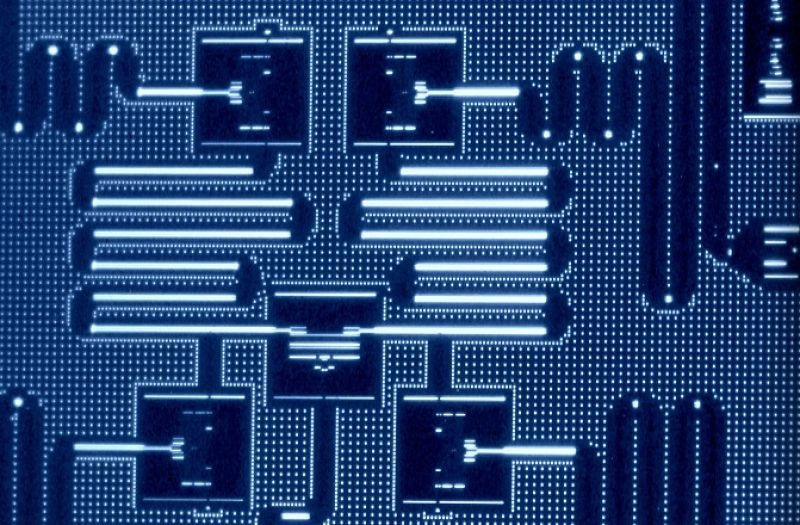Dec 15 2017
SCIENTISTS at the University of Salford are helping to develop the first generation of quantum computing and communication technologies.
 Credit: University of Salford
Credit: University of Salford
Quantum computers, in theory, are vastly more powerful than conventional machines, because could solve, almost instantaneously, certain problems where every solution needs to be calculated.
“There are lots of avenues of investigation being looked at by scientists across the world before we can create a workable machine,” explains Dr Mark Hughes. “People are looking at trapped atoms, superconducting resonators, quantum dots and more.
“What interests us here at Salford is how these quantum computers will perform when communicating with other computers, in other words, how they will transmit data via fibre optics?
EPSRC funded
Dr Hughes, a materials scientist who specialises in internet signalling, is part of a team of UK scientists funded by the Engineering & Physical Sciences Research Council (EPRSC) to look into these quantum quandaries.
Quantum physics posits that quantum systems, such as atoms, can exist in more than one state at the same time. At the atomic level, subatomic particles can, for example, spin both clockwise, and anticlockwise at the same time – the so-called superposition.
What is Quantum Computing?
- In conventional computers, a bit is a single piece of information that can exist in two states – 1 or 0. Quantum computing uses quantum bits, or 'qubits' instead. These are represented in quantum systems with two states which, due to quantum superposition, can be both a 1 and a 0 at the same time.
- So, due to the way quantum systems behave, certain operations can be done much more quickly than conventional computers.
- A Canadian company recently released a quantum computer with a 2,000 qubit processor, however, it is uncertain whether such machines are currently achieving speeds beyond those possible with classical computers.
In previous research Dr Hughes discovered that the rare-earth metal erbium can combine with silicon to enhance internet signalling, and this metal is again his focus for this two-year study.
If a quantum computer is to be built, it’d most likely be based on silicon and also use erbium to interface with fibre optic communication. What is unknown is how these materials relate to the superpositions at a quantum level.
“Our task will be to establish how long these materials can stay in a superposition of state, and how long optical transitions can remain in a superposition of state,” explained Mark.
Rare earth atoms
“Erbium has good potential not least because rare earth atoms have an electron orbital structure that creates a barrier against interference from surroundings that can disrupt delicate superpositions of state, but we shall have to see.”
Salford physicists will work alongside the universities of Surrey, UCL, Manchester and the National Physical Laboratory on the project which is recruiting a postdoctoral fellow and a PhD researcher.
So will we be building a quantum computer here at Salford? “No, not just yet! But we will be creating some unique instruments in order to carry out the necessary tests,” says Dr Hughes.